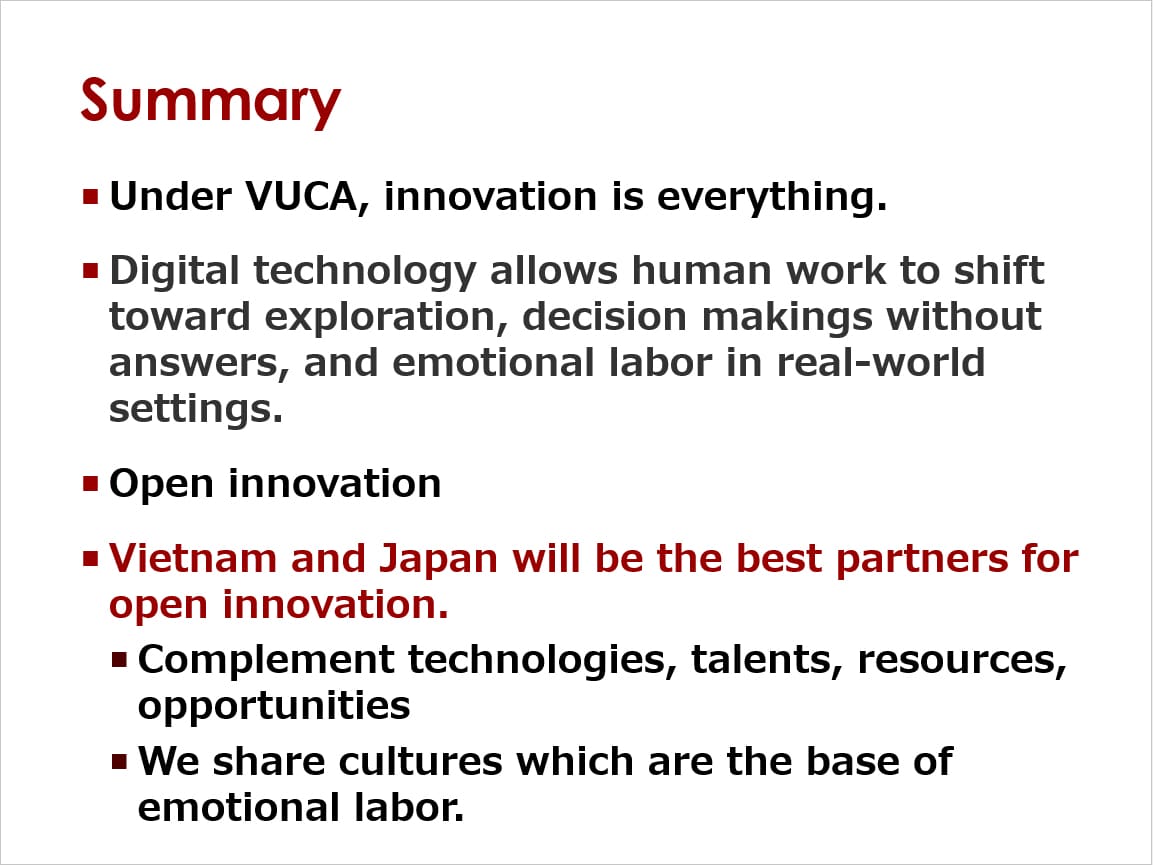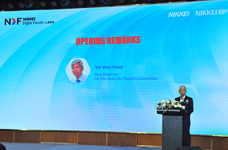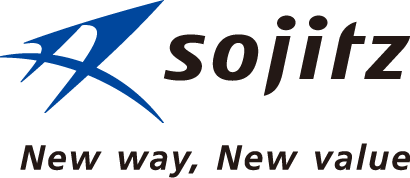

Review
Keynote Session, Closing Session
Keynote Speeches on the Promotion of DX and GX
“Collaboration between Japan and Vietnam can drive innovation”
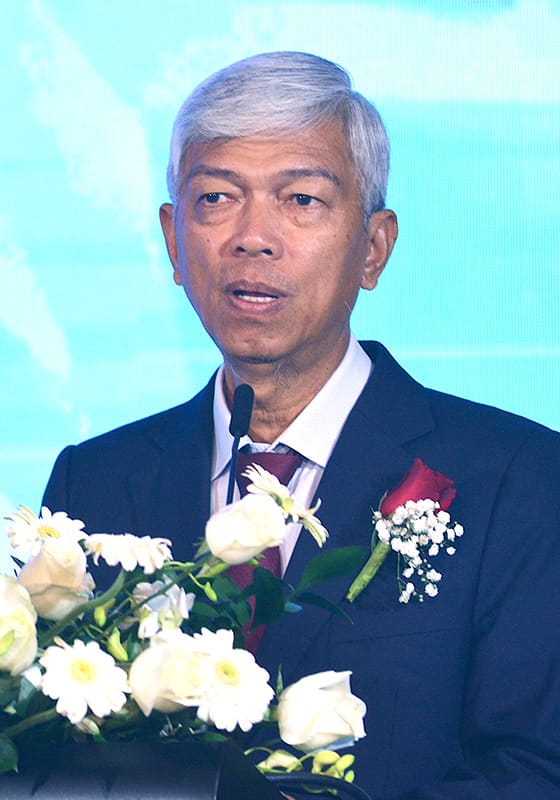
Vice Chairman of the People’s Committee of Ho Chi Minh City
To illustrate the excellent relations between Japan and Vietnam, Hoan pointed out that diplomatic ties between the countries were upgraded to the highest level of “Comprehensive Strategic Partnership” in November 2023. He also touched on the launch, in March 2024, of the “Vietnam-Japan Joint Initiative in a New Era,” a framework for public-private partnerships between the countries. He explained that this involves working together to promote innovation, digital transformation (DX) and economic growth.
Ho Chi Minh City, where Hoan serves as Vice Chairman of the People’s Committee, has set its sights on becoming a modern and creative “smart” city by 2030. As Hoan explained, “Ho Chi Minh City aims to become a center of economics, finance, trade, culture, education and science, so it is striving to become a pacesetter in the digital economy and digital society.”
Ho Chi Minh City has set high growth targets for itself, aiming to hit double-digit growth in 2025. The city also expects to achieve 40% of its growth in 2025 from digital-related businesses. “Our goals are ambitious, so we want to use this forum as a learning opportunity to help us achieve them,” said Hoan.
Hoan cited a saying, “If you want to go fast, go alone, but if you want to go far, go with everyone.” He continued, “I hope that this forum gives rise to cooperative projects and contributes to the development of both countries.”
Expecting to leap into global markets
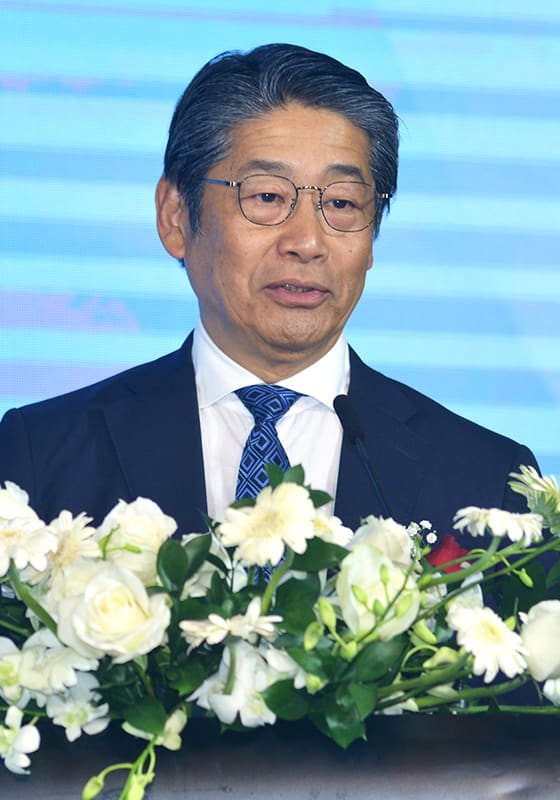
Ambassador, Embassy of Japan in Vietnam
Next, Ambassador Naoki Ito made a presentation on Line 1 of the Ho Chi Minh City Metro (HCMC Metro), Vietnam’s first subway line, which opened in December 2024. This was the fruit of the comprehensive strategic partnership between the two countries. He explained, “More and more people are commuting to work and school by train, which has allowed them to use the time they used to spend riding motorcycles for work or other desired activities. The lives of people in Ho Chi Minh City are steadily changing.”
HCMC Metro Line 1 features cashless ticketing, allowing passengers to pay fares using credit cards, QR codes and citizen ID cards. The system was built by FPT Information System (FPT IS), a subsidiary of FPT Corporation, Vietnam’s largest IT services company. Ito said, “The cashless system is exceptionally convenient. I see HCMC Metro Line 1 as a vital piece of infrastructure that was made possible by collaboration that leveraged the respective strengths of companies in our two countries.”
Ito mentioned that as Vietnam works hard to promote DX, the country’s digital industry is enjoying rapid growth. “I am confident that Vietnam will offer numerous business opportunities for Japanese companies. Japan and Japanese companies can be ideal partners for the promotion of DX in Vietnam. Ito cited the example of collaboration between Vietnamese IT-related companies and Japanese companies, saying, “We can generate innovations that will lead to greater competitiveness such as in the area of digital marketing, which provides products that address consumer needs and trends.”
Summing up his outlook, Ito said, “I expect that through the promotion of DX, companies in both countries will achieve a great deal in Vietnamese, Southeast Asian and even global markets.”
Further promoting personnel exchanges
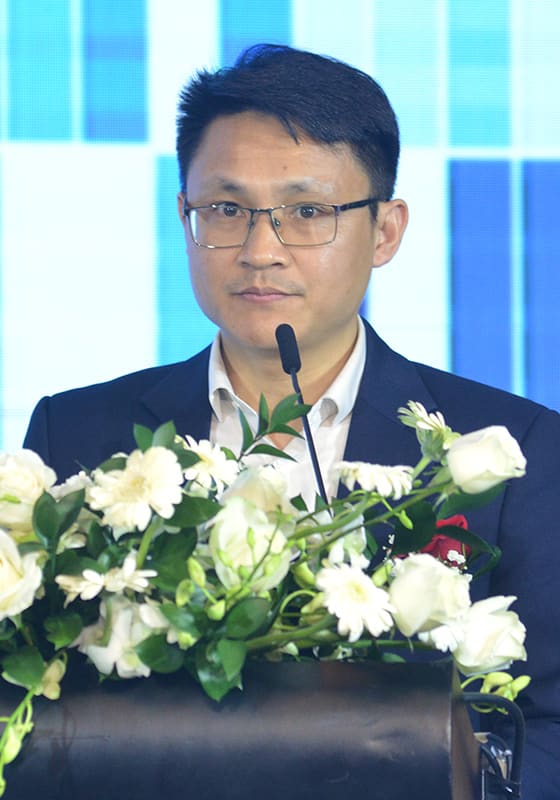
Deputy Director, National Innovation Center (NIC)
In his keynote speech, Hoai of NIC discussed the state of digital-based innovation in Vietnam.
He noted that over 40% of companies in Vietnam are currently engaged in DX and other kinds of digital innovation. “The government is supporting innovation by formulating policies and providing opportunities to implement innovation,” he said.
Many innovation-related initiatives are being promoted jointly with Japan. As well as providing numerous services for Japanese companies, Vietnamese IT companies are collaborating in the field of semiconductors. There are also many opportunities for investment and financing in each other’s countries. “NIC, too, is engaged in collaborative and joint activities with Japan on an almost daily basis,” he revealed.
Hoai expressed his hope of “further strengthening the relationship between the two countries.” In addition to cooperating in personnel training for the semiconductor industry, artificial intelligence (AI), smart factories and other areas, he said that NIC would cooperate with Japan to promote investment and business development by Japanese companies in Vietnam.
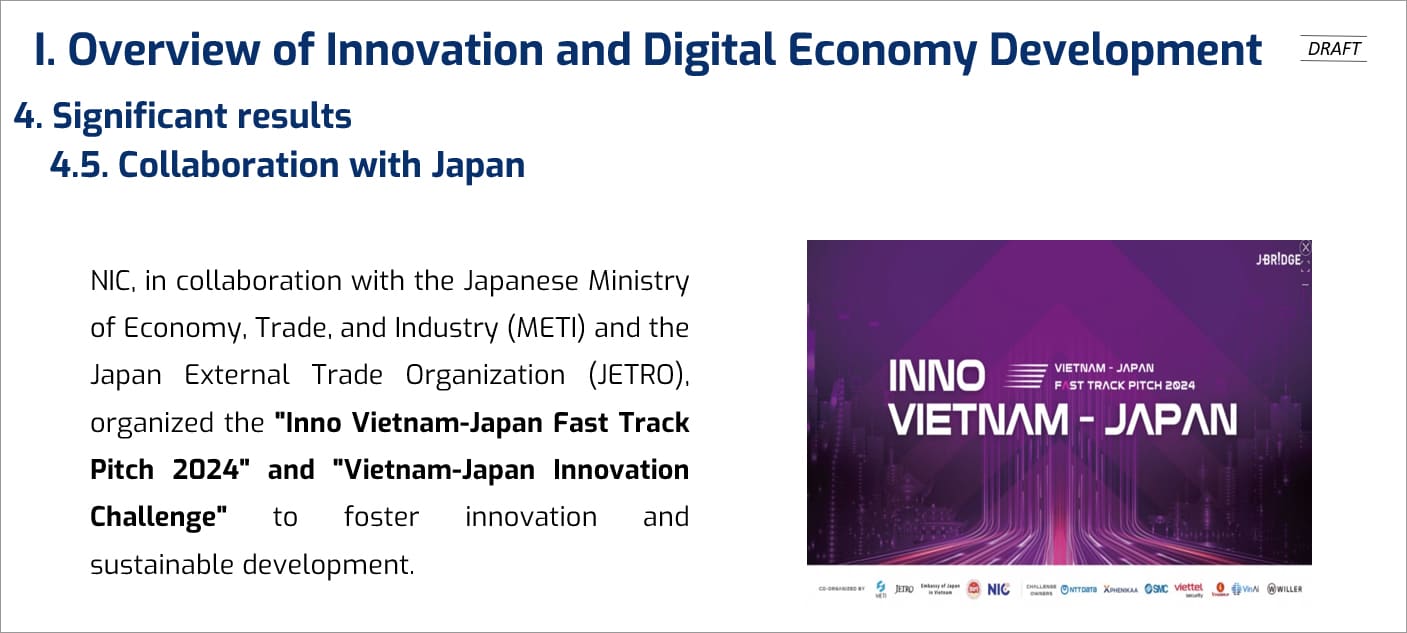
Understanding local users to enhance their experience
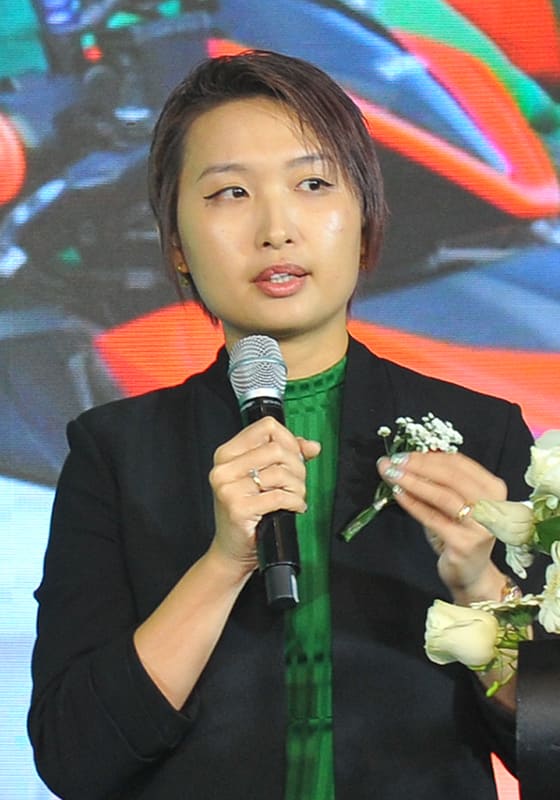
Head of Country Marketing, Grab Vietnam
Anh, Grab Vietnam’s marketing head, reflected on the ride-hailing app business that the company has been building in Vietnam since 2014. “We have been pursuing our business with a desire to have Vietnamese people experience the benefits of digital technology and enjoy superior user experiences.”
Grab is operating in various countries across Southeast Asia. Anh said, “When you do business in a country, you need to understand the users in the country before thinking about how to deliver the best user experience and improve customer satisfaction.” Grab has paid special attention to enhancing its services for more socially disadvantaged people.
One of the services discussed by Anh was “Grab-For-Mom,” a service for pregnant women that was first launched in Vietnam. According to Ahn, pregnant women in Vietnam tend to be strongly conditioned by national traits, “making it difficult for them to ask for the special consideration they may need.”
Grab-For-Mom is designed to assist such women by informing the driver of their pregnancy before each ride. “This allows the driver to help the woman in various ways, for example by opening the car door, carrying heavy luggage, and slowing down on bumpy roads,” explained Ahn.
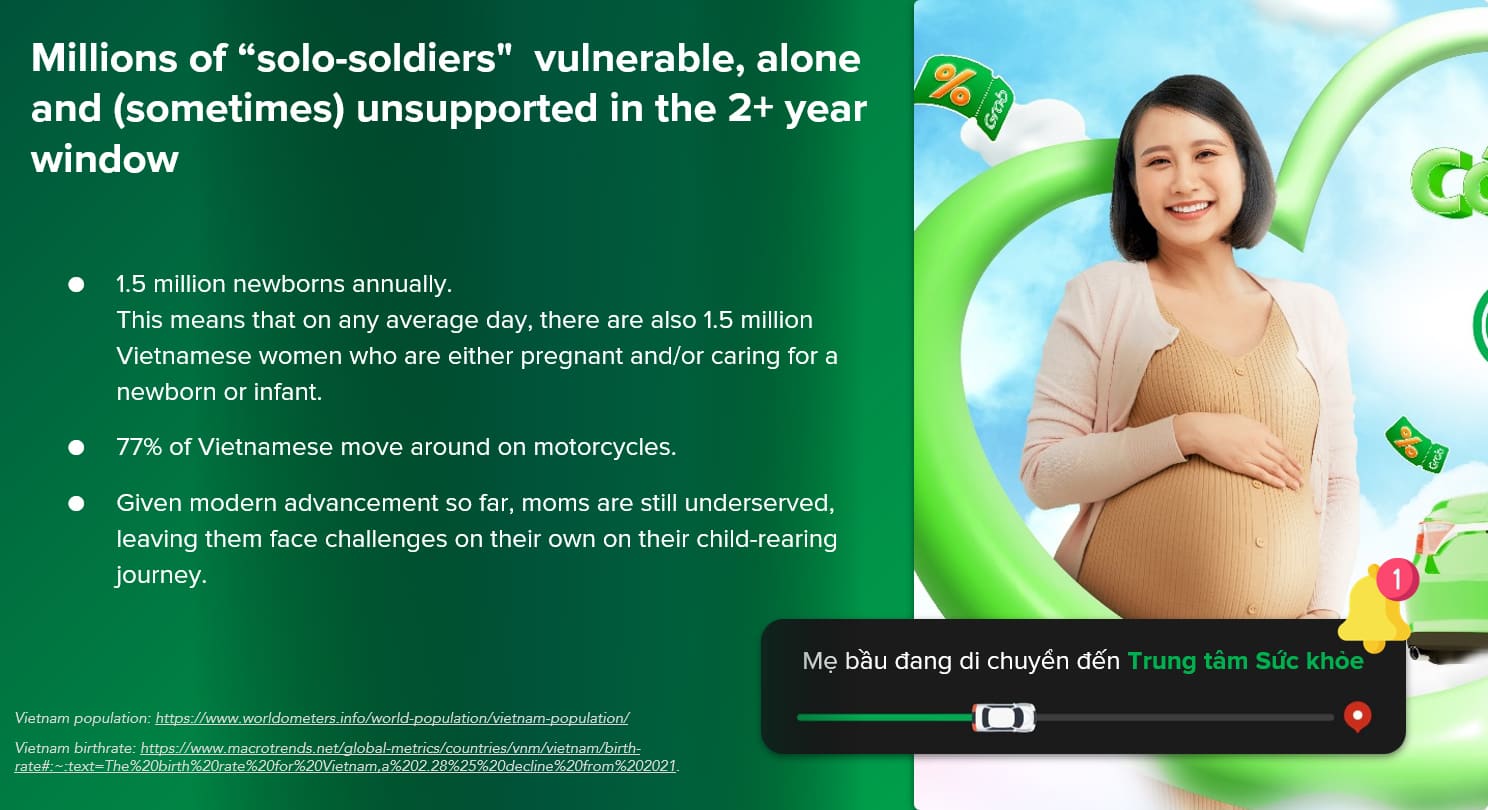
Ahn concluded, “In Vietnam and other countries in which we do business, we want to continue offering services developed out of a deep understanding of our users.”
Japan and Vietnam, an ideal combination
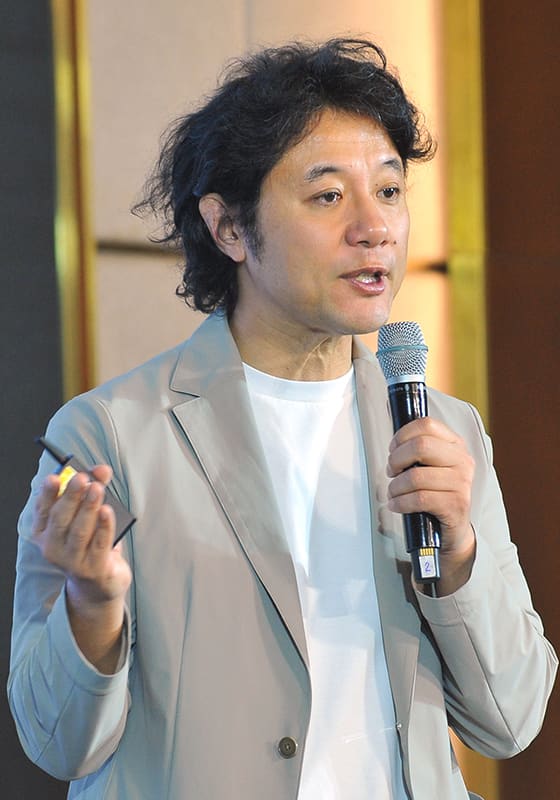
Professor, Waseda Business School
(Graduate School of Business and Finance, Waseda University)
Professor Iriyama of Waseda Business School took the podium for the closing speech. His main point was that “Japan and Vietnam can continue to create more and more innovations and business opportunities.”
Iriyama explained that according to business administration theory, a necessary condition for generating innovation is “pursuing both exploration and exploitation of knowledge.” While exploitation of knowledge can be handled by AI, “exploration can only be done by humans, because it necessitates venturing into the unknown and making many mistakes.”
The most effective way for companies to perform exploration is to collaborate with companies that operate businesses at distant locations. Iriyama asserted that “Vietnamese companies are ideal partners” for collaborations with Japanese companies. “Japan possesses a lot of technology, exceptional experience in manufacturing and numerous companies with the capacity to invest, while Vietnam has many entrepreneurs with youthful energy and a willingness to take risks.”
“For generating open innovation, there is no better combination than Vietnam and Japan,” he insisted, adding, “It would be great if the two countries can grow further together and contribute to the development of the world.”
